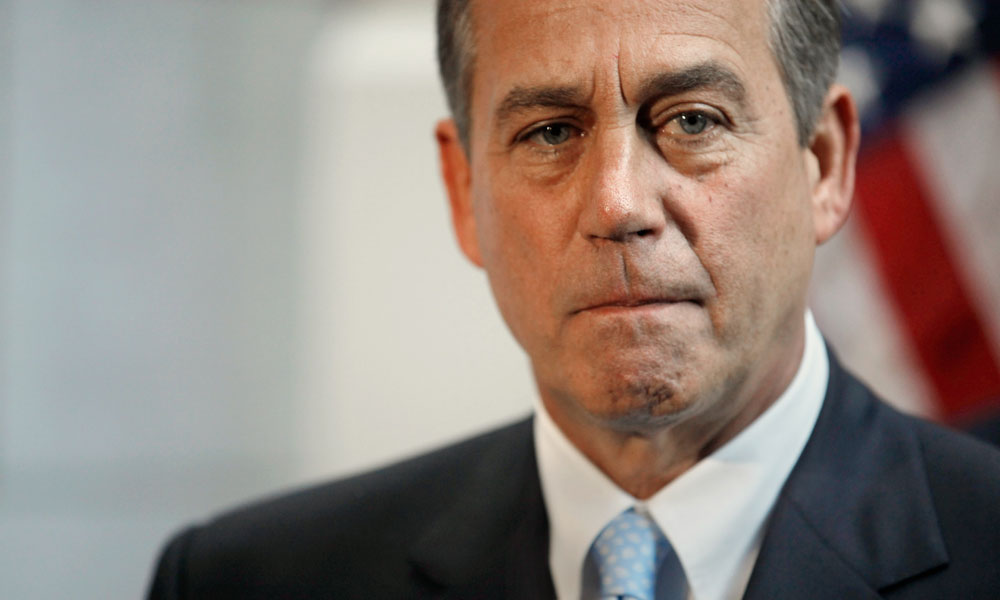
Online Sales Tax Bill Faces House Setback
House Speaker John Boehner says he won’t bring the Marketplace Fairness Act to the floor during the lame-duck session of Congress, despite it having the wide support of retail groups. Advocates are considering tying the bill to a Senate measure that bars taxes on internet access.
The battle over internet sales tax may have to wait for another day.
In comments to The Wall Street Journal this week, House Speaker John Boehner (R-OH) emphasized that he opposed the Marketplace Fairness Act in its current form and would formally block the measure. The bill would close a loophole—commonly used by online businesses—that lets companies with no physical presence within a state forgo charging sales taxes on purchases.
“The speaker has made clear in the past he has significant concerns about the bill, and it won’t move forward this year,” Boehner spokesperson Kevin Smith told the newspaper.
Today’s marketplace needs a modern sales tax collection system to reflect reality.
The move comes as a big blow to the retail sector, which has long pushed for the bill’s passage and saw more success in the Senate, where the bill passed last year.
In a letter sent to Boehner by the Marketplace Fairness Coalition on Wednesday, the wide-ranging retail alliance—including hundreds of associations, most in the retail space—noted that the legislation is widely supported and has been talked about in more than 30 Congressional hearings since 1994, the year Amazon was founded.
“American businesses are poised to meet consumer demand, regardless of the channel used for purchasing merchandise,” the letter states [PDF]. “But taxes should be applied equally to those purchases, regardless of the channel through which the consumer chooses to purchase. Today’s marketplace needs a modern sales tax collection system to reflect reality.”
The WE R HERE Coalition, a group of online retailers opposed to the sales tax rule, launched a website this week that lays out the coalition’s reasoning. It welcomed Boehner’s comments.
“We’re pleased to see that Speaker Boehner understands the threat that the misnamed Marketplace Fairness Act poses to small e-retailers,” WE R HERE Executive Director Phil Bond told the Journal.
A Controversial Workaround
Despite the setback in the House, some in the Senate see another way to push the issue—by tying it to an extension of the Internet Tax Freedom Act, a law that bars local communities from putting taxes on internet access. That law isn’t controversial, but the combined approach may not fly, thanks to opposition from influential Sen. Ted Cruz (R-TX), who argued passionately against any efforts to push through a sales tax bill:
Cruz (who drew controversy for net neutrality comments he made this week) isn’t alone in that sentiment; Senate Finance Committee Chairman Ron Wyden (D-OR) has previously warned against such an approach.
“Anyone who votes for passing MFA alongside ITFA is voting to repeal the Internet Tax Freedom Act,” Wyden said back in September.
Despite the current situation, retail trade groups remain hopeful that a solution can be found.
“The comments were frustrating for those of us in the business community that have been working in good faith with House leadership,” the Retail Industry Leaders Association’s Jason Brewer told The Wall Street Journal. “Regardless, it doesn’t change the Senate dynamics, where a clear bipartisan majority wants [the two issues] solved together.”
House Speaker John Boehner won't bring the Marketplace Fairness Act to a vote. (Chip Somodevilla/Getty Images)






Comments